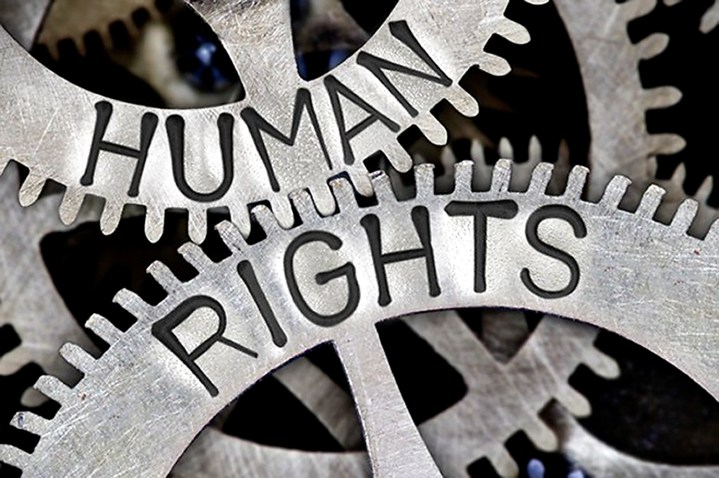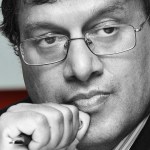Maverick Citizen Tuesday Editorial
The vital need for economic democracy in South Africa

"Economists have only ruined the world – the point is to improve it". (With a nod to Karl Marx) Today is the United Nations International Day of Democracy. At a time when democracy is under attack in so many parts of the world, the day could not be more important. But rather than activists satisfying ourselves with glib platitudes, we should ask deeper questions about what’s going wrong. One obvious area we should look at is the disconnect between democracy and economy.
Until recently, one of the greatest weaknesses of social justice activism in South Africa, and internationally, was that it paid little attention to economics. Activists and organisations frequently launched campaigns for human rights into a void, paying little to no attention to how their legitimate demands would be financed.
Let’s be clear: the legitimacy of human rights does not depend on whether governments claim to have money to pay for them. In terms of the Constitution, there is a binding legal duty to respect, protect, promote and fulfil all rights. However, if activists don’t link human rights claims to a demand for the fiscal reforms needed to fund them, the result is that they are often not financed at all.
Witness how long education rights activists have waited for the implementation of norms and standards for school infrastructure, including safe toilets, in spite of the “immediately realisable” nature of the right to basic education.
And, now that the government is once again cutting the education infrastructure budget, they will wait even longer. Probably indefinitely.
On the other hand, those economists who seek fairer distributive and less planet-damaging outcomes from economic policy, have rarely made common cause with the human rights movement. They do not seem to appreciate that actual power resides in human rights law against financial systems that have largely dispensed with fairness.
The result is that they, too, are largely impotent.
Greek economist Yanus Varoufakis points out in a recent article how “for the first time in history, financiers don’t give a damn about the real economy” and warns how, as a result of this period of what he calls post-capitalism, “the demos (people) is ostracised from our democracies”.
However, Varoufakis doesn’t indicate how we can put the “demos” back.
Similarly, Oxford economist Kate Raworth, in her bestselling book Doughnut Economics: Seven Ways to Think Like a 21st Century Economist, describes the inner ring of the doughnut as the 12 “basics of life on which no one should be left falling short”, and acknowledges how “since 1948, international human rights norms and laws have sought to establish every person’s claim to the vast majority of these basics, no matter how much or how little money or power they have”.
Raworth declares “we are all economists now” and calls on “economics to step back from soloing in the limelight and join the troupe instead”.
But when it comes to using the legally binding nature of the international human rights regime and its power – if only it was utilised – to force changes to economic organisation, she has nothing to say.
Unbelievably, therefore, neither discipline has yet taken advantage of their mutual dependence.
But times are a-changing
However, it’s spring and in South African civil society there are green shoots that suggest times are a-changing.
In the last two years, a number of economists and economics-based organisations (let’s call them EBOs) have begun to emerge and are working alongside civil society campaigns. Tentatively, I would suggest a growing convergence between progressive economists and human rights activists.
Among these are the Institute for Economic Justice (IEJ), the Budget Justice Coalition (BJC) and the student movement on Rethinking Economics for Africa. Among the individual economists are people like Busi Sibeko, Duma Gqubule, Sonia Phalatse, Gilad Isaacs, Neil Coleman, Daniel McLaren, Ayabonga Cawe and Kamal Ramburuth-Hurt.
Recently, there have also been important political interventions led by economists, such as the March 30th letter to the president and the public call on Parliament in July to reject the Supplementary Budget.
In engagements with these economists, what is refreshing is how their arguments have moved beyond polemic and posturing: they focus on alternatives that are evidence informed, knowledge based, can be applied to the current crisis and are solution oriented. They are able to compete with the best economists of business and the status quo, often out-arguing them and leading them into cul-de-sacs of their own systems’ making.
But sadly, the ‘Rethinking Economists’ (for want of a better description) are not being listened to. Rather than engaging human rights economists on substantive arguments, they are stigmatised or misrepresented by the likes of Peter Bruce (Our road diverges up ahead and Cyril must choose) in a new form of rooi gevaar.
Or they are simply ignored.
In South Africa, despite the constitutional injunction that ours be a ‘participatory democracy’, there is still no statutory forum for citizens to debate the economic policy decided by the executive.
Despite the oversight function attached to it by the Constitution (affirmed strongly in the Nkandla judgment), year after year, budget after budget, Parliament fails dismally to meaningfully interrogate the executive on economic policy.
Although NEDLAC is now debating a Covid-19 economic recovery plan, all but a mostly unaccountable rump of civil society is absent from these discussions.
Progressive economists may dominate the membership of the President’s Economic Advisory Council, but they seem entirely marginal to the decision-making of the Treasury.
The result is that South Africa’s economic policy is informed more by fear and ideology than evidence. It seems to be fear of Moody’s, fear of a sovereign debt crisis, fear of IMF disapproval, rather than evidence about what is happening in the real world that shapes economic policy.
Add to that denialism, the social costs of denying people their basic rights.
It doesn’t seem to matter that reform economists point out that the austerity policies we are pursuing will do the exact opposite of what they claim as their raison d’etre: they will not stabilise the debt crisis.
Over the last few months, indeed, over the last few decades, reform economists have done their best to point out this folly. But there is no evidence that their arguments have even been seriously engaged. And this is why economists now need human rights lawyers and movements on their side.
In Raworth’s words, it’s time to join the troupe.
International human rights law – now or never
In the last 30 years, there has been a global shift to recognise socioeconomic rights and make them binding in international law. However, the changed approach of law has not been followed by economic or fiscal policies.
The result is that the promises of 21st century democracy are still-born.
One obvious result was our vulnerability to Covid-19 and the enormous toll this has taken on the already poor.
This failure to adapt economic policy has been scathingly criticised by experts within the UN system, such as the former Special Rapporteur on Human Rights and Extreme Poverty, Philip Alston. In a 2016 report to the UN Human Rights Council (A/HRC/32/31), Alston warned presciently that “the constitutional recognition of economic and social rights may well be overshadowed or undermined by parallel and far more effective processes involving the constitutional and legal enshrinement of austerity measures”.
Alston, together with University of Stellenbosch chair in human rights law, Sandy Liebenberg, recently participated in a webinar on the Parlous State of Poverty Eradication organised by SECTION27 – another sign of the changing times (see a report here).
These issues are neither academic nor theoretical.
Although South Africa is showing signs of recovering from the first wave of Covid-19, with deaths and new infections declining, there is going to be no quick recovery from the economic crisis. In fact, it is set to intensify.
At this point, the Cabinet seems determined to continue to lock South Africa into a policy of austerity, seeking to alleviate the debt crisis (is there really a crisis?) primarily by cutting public expenditure, which means cutting constitutional rights.
However critical off-ramps from this policy are approaching: notably, decisions that must soon be made over whether a universal Basic Income Grant (BIG) will replace the Covid-19 special grant, and how South Africa will make a just transition to clean energy in the face of a visibly worsening climate crisis. These decisions and the government’s line of march will be reflected in the Medium Term Budget Policy Statement (MTBPS) due in October, and then in the 2021 Budget. Now is the time for all to contest them.
Despite rhetoric of a new inclusive economy, it doesn’t look like the government has the vision or the will to put people first.
This is why the serious discussion just beginning within civil society, about whether and how to resort to constitutional litigation to contest economic policy, is so important.
One can only hope that the rethinking economists and human rights activists will soon consummate their dalliance in a marriage of action. They have nothing to lose but their chains. DM/MC
To fill the hole where most financial journalists refuse to venture Maverick Citizen is partnering with the IEJ to host a series of webinars. Our aim to demystify economic questions and increase public engagement in what is literally a life and death issue for millions of people, but which sadly is usually entrusted to ‘the experts’. The first of these webinars, titled ‘Questions That Need Answers’, can be viewed here.
Mark Heywood is the Editor of Maverick Citizen.
"Information pertaining to Covid-19, vaccines, how to control the spread of the virus and potential treatments is ever-changing. Under the South African Disaster Management Act Regulation 11(5)(c) it is prohibited to publish information through any medium with the intention to deceive people on government measures to address COVID-19. We are therefore disabling the comment section on this article in order to protect both the commenting member and ourselves from potential liability. Should you have additional information that you think we should know, please email [email protected]"



















Promoting a good cause is not enough to succeed. Activists need to think much more strategically. No attempt is made in the article to even define or describe economic democracy, to identify the nature of the institutions that are standing in the way, where the power lies in these institutions and how it might be productive to engage with these powers in a manner that identifies the real issues for both sides
Mark Heywood yacks slogans. The left wing have ruined more lives than democracy ever has. Name one country that has prospered under “progressive economists”! Not Sweden, not New Zealand not Venezuela! He does not describe “economic democracy”. Just another slogan!